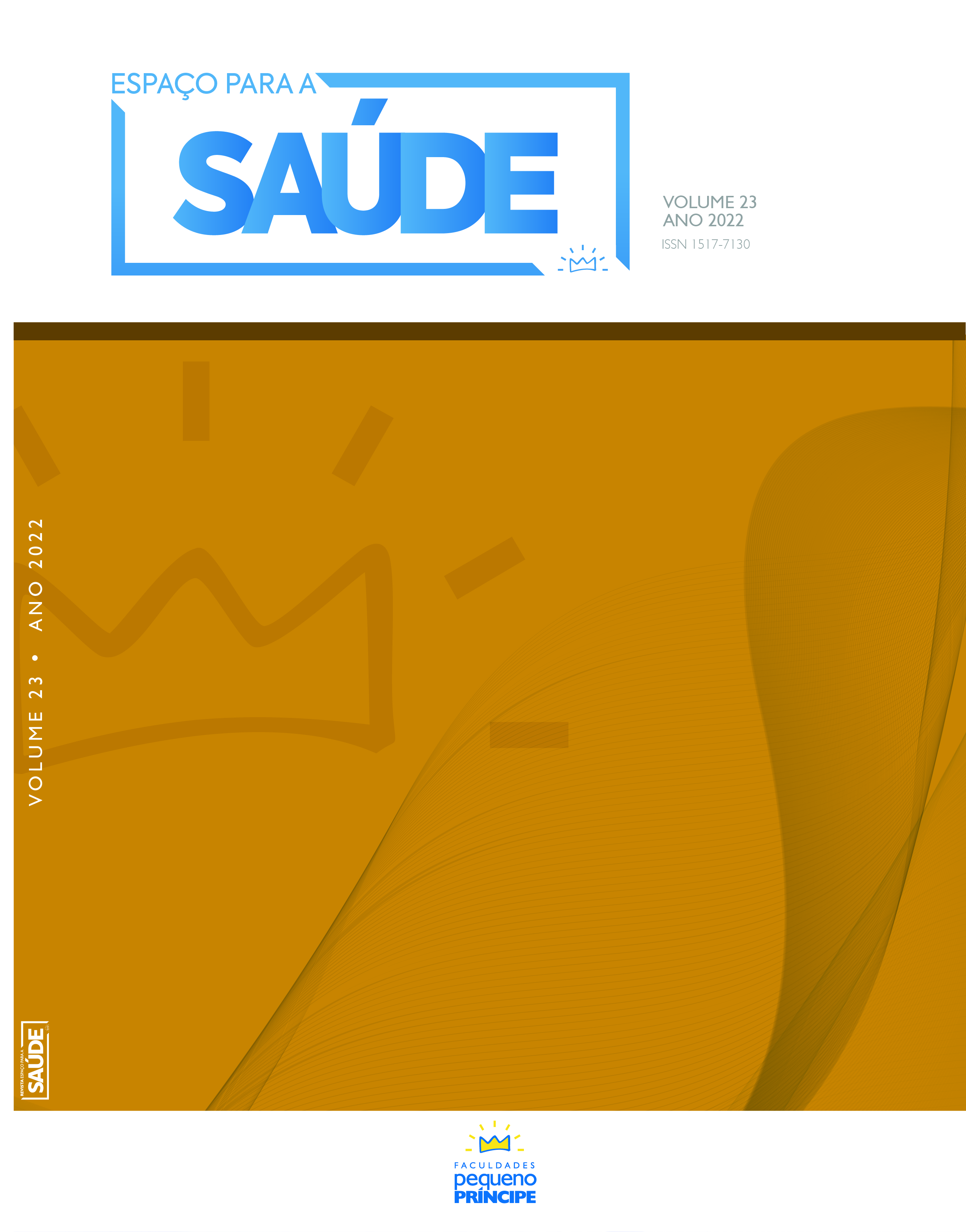The experience of being a simulated patient in healthcare training
DOI:
https://doi.org/10.22421/1517-7130/es.2022v23.e880Keywords:
Patient Simulation, Experience Based Learning, Students, Health OccupationsAbstract
Simulation-based learning gains space in health education curricula with the use of simulated
patients, providing students with skills development in a protected teaching-learning
environment. The contact with a simulated situation stimulatesclinical skills training before the
contact with real patients. The objective is to identify how the experience of being a simulated
patient influences the academic formation of healthcare students. The method was exploratorydescriptive, with a quantitative approach, developed through cross-sectional research with a
Likert scale questionnaire, applied through an online survey. This study evidenced that health
students who participated in clinical simulations as Simulated Patients perceived benefits
for their development as future professionals. Interpreting a clinical case arising from reality
makes this learning more meaningful compared to a class with a traditional teaching method
on the same subject
References
Araújo PRS, Duarte TTP, Magro MCS. Efeito da simulação para a aprendizagem significativa. Rev. Enferm. UFPE online. 2018 dez;12(12):3416-25. Disponível em: https://periodicos.ufpe.br/revistas/revistaenfermagem/article/viewFile/237671/30820
Berbel NAN. As metodologias ativas e a promoção da autonomia de estudantes. Semina: Ciências Sociais e Humanas. 2011;32(1):25-40. Disponível em: https://ojs.uel.br/revistas/uel/index.php/seminasoc/article/view/10326
Bortolato-Major C, Arthur JP, Silva ATM, Mantovani, MF, Felix, JVC, Boostel R. Contribuições da simulação para estudantes de graduação em enfermagem. Rev. enferm. UFPE online. 2018 jun;12(6)1751-62. Disponível em: https://periodicos.ufpe.br/revistas/revistaenfermagem/article/view/230633/29225
Costa RRO, Medeiros SM, Martins JCA, Menezes RMP, Araújo MS. O uso da simulação no contexto da educação e formação em saúde e enfermagem: uma reflexão acadêmica. Espaço para a Saúde-Revista de Saúde Pública do Paraná. 2015;16(1):59-65. Disponível em: https://pesquisa.bvsalud.org/portal/resource/pt/lil-763806
Feitosa TAF. Proposta de implantação do método avaliativo de competências clínicas (mini-cex) na residência médica em doenças infecciosas da universidade federal do Rio Grande do Norte [dissertação]. UFRN (Pós-Graduação em Ensino na Saúde): UFRN, NATAL;2015. Disponível em: https://repositorio.ufrn.br/handle/123456789/20666
Kaneko RMU, Lopes MHBM. Cenário em simulação realística em saúde: o que é relevante para a sua elaboração? Rev Esc Enferm USP. 2019;53:e03453. Disponível em: https://www.scielo.br/j/reeusp/a/wcQrCdz4ZcXgQxC9vpHcrKJ/?format=pdf&lang=pt
Moore P, Leighton MI, Alvarado C, Bralic C. Pacientes simulados en la formación de los profesionales de salud: el lado humano de la simulación. Rev Med Chile. 2016;144:617-625. Disponível em: https://www.scielo.cl/scielo.php?script=sci_arttext&pid=S0034-98872016000500010
Negri EC, Mazzo A, Martins JCA, Pereira Junior GA, Almeida RGS, Pedersoli CE. Simulação clínica com dramatização: ganhos percebidos por estudantes e profissionais de saúde. Revista Latino-Americana de Enfermagem. 2017;25(1-10). Disponível em: https://www.scielo.br/j/rlae/a/QQxfsnbsqwYJCMmjRPp7xtB/?lang=pt&format=pdf
Neves RS, Barros AF, Esper MA, Bezerra TJN. Avaliação do exame clínico objetivo estruturado (OSCE) por estudantes e docentes de graduação em enfermagem. Rev. Com. Ciências Saúde. 2016; 27(4):309-16. Disponível em: https://revistaccs.escs.edu.br/index.php/comunicacaoemcienciasdasaude/article/view/55
Oliveira AM, Chaves PM, Garcia GMP, Spínola CV, Fernandes DS, Calderaro DC, Aguia, CFC. Simulação realística na educação interprofissional de estudantes de graduação da área da saúde: uma breve revisão da literatura. Brazilian Journal of Surgery and Clinical Research. 2018 mar/mai;22(3):37-40. Disponível em: https://www.mastereditora.com.br/periodico/20180504_105359.pdf
Partecke M, Balzer C, Finkenzeller I, Reppenhagen C, Hess U, Hahnenkamp K, Meissner K. Interprofessional learning – development and implementation of joint medical emergency team trainings for medical and nursing students at universitätsmedizin Greifswald. GMS Journal Med Educ. 2016;33(2). Disponível em: https://pubmed.ncbi.nlm.nih.gov/27280143/
Passos GM. A Importância do paciente simulado como recurso pedagógico na formação do médico. UNILUS Ensino e Pesquisa. 2016 out/dez;13(33):21-27. Disponível em: http://revista.unilus.edu.br/index.php/ruep/article/view/770/u2016v13n33e770
Reeves S. Porque precisamos da educação interprofissional para um cuidado efetivo e seguro. Interface-Comunicação, Saúde, Educação. 2016;20(56): 185-196. Disponível em: https://www.scielo.br/j/icse/a/VrvpZyszPQ6hrVp7SFhj6XF/?lang=pt&format=pdf
Teixeira IND, Felix JVC. Simulação como estratégia de ensino em enfermagem: revisão de literatura. Interface-comunicação, saúde, educação. 2011 out/dez;15(39):1173-84. Disponível em: https://www.scielo.br/j/icse/a/wWtbMv9CjcSSVnKkMJsvgzD/?lang=pt
Tibério IFLC, Daud-Gallotti RM, Troncon LEA, Martins MA. Avaliação prática de habilidades clínicas em medicina. São Paulo: Atheneu; 2012.
Troncon LEA. Utilização de pacientes simulados no ensino e na avaliação de habilidades clínicas. Rev. Medicina, Ribeirão Preto. 2007 abril/junho;40(2):180-191. Disponível em: https://www.revistas.usp.br/rmrp/article/view/315/316
Vyas D, McCulloh, Dyer C, Gregory G, Higbee D. An interprofessional course using human patient simulation to teach patient safety and teamwork skills. Am J Pharm Educ. 2012;76(4).Disponível em : https://www.ncbi.nlm.nih.gov/pmc/articles/PMC3355291/
Downloads
Published
How to Cite
Issue
Section
License
Copyright (c) 2022 Espaço para a Saúde

This work is licensed under a Creative Commons Attribution 4.0 International License.
Authors who publish in this journal agree to the following terms:
- Authors grant the journal the copyright, with the work simultaneously licensed with Creative Commons CC BY, which allows the sharing of work with recognition of authorship and initial publication in this journal.
- Authors are authorized to assume additional contracts separately, for non-exclusive distribution of the version of the work published in this journal (e.g., to publish in an institutional repository or as a book chapter), with authorship recognition and initial publication in this journal.
- Authors are permitted and encouraged to publish and distribute their work online (e.g., in institutional repositories or on their personal page) at any point before or during the editorial process, as this can generate productive changes, as well as increase the impact and the citation of the published work (See The Effect of Free Access).






